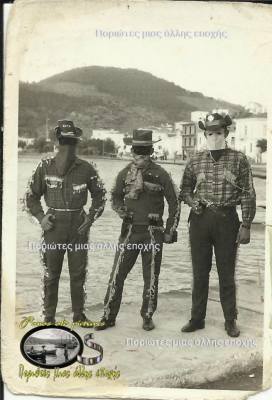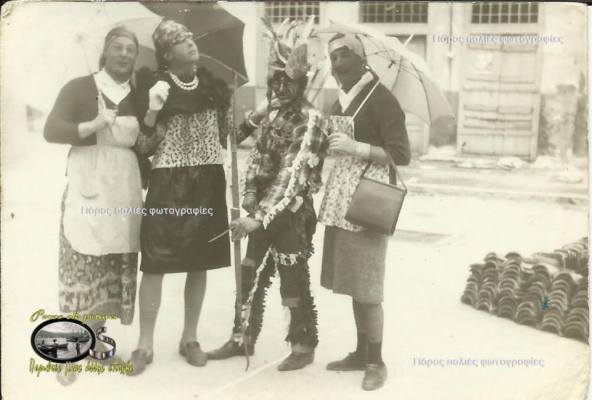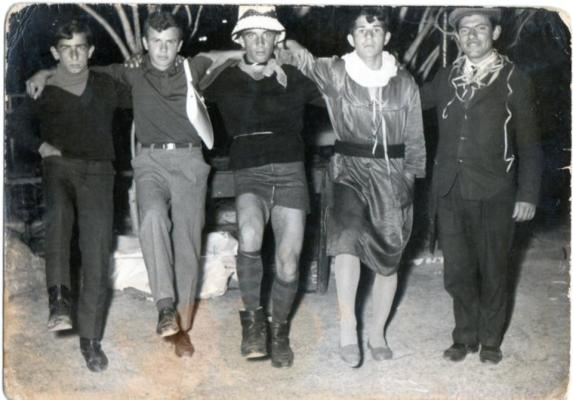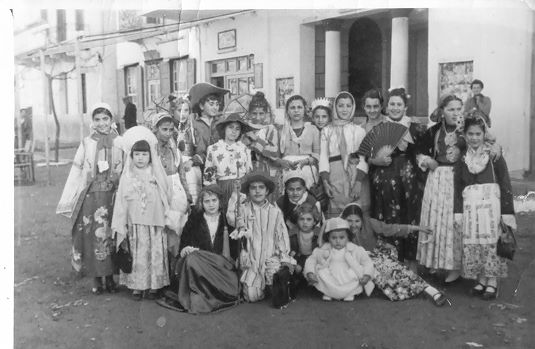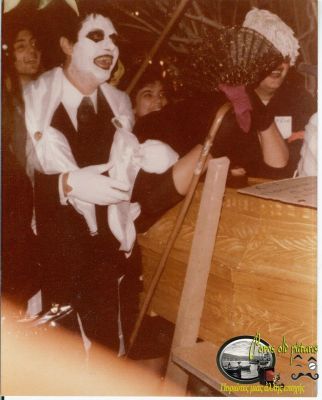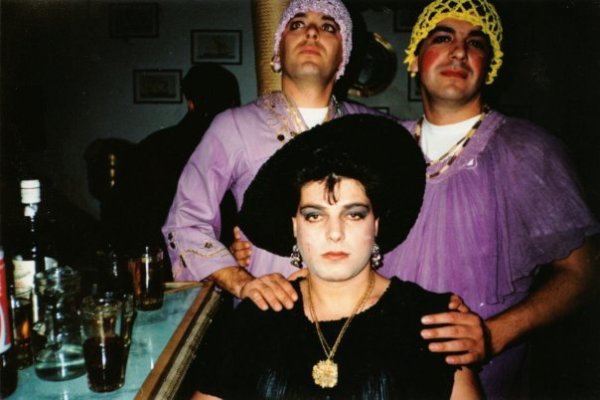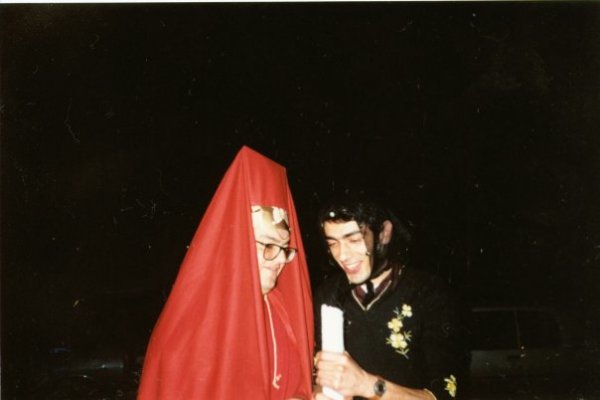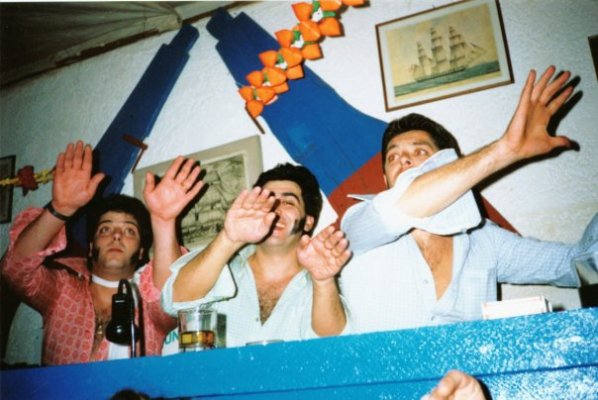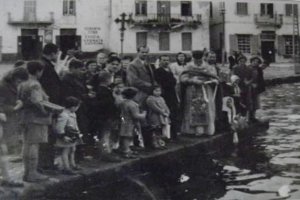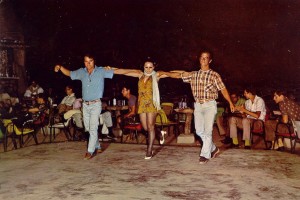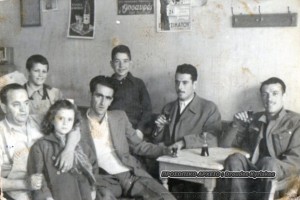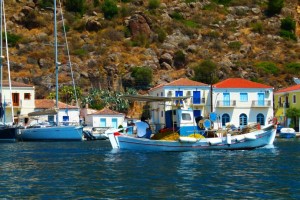
Successive generations of Poriotes are bound by an irrepressible sense of humor and zest for life which can be seen in their daily activities and interactions but comes out strongest perhaps during the weeks of carnival or apokries. Locals’ wit is expressed through carnival costumes satirizing local happenings or national events. And while some apokries customs are found throughout Greece, the island’s carnival traditions are recorded in the writings of author and folk historian Yannis Poulakis.
The celebration of apokries harks back to the Dionysian festivals of ancient Greece and is rooted in the Anthesteria. Every Greek region and town has its own customs linked to the tradition of the masquerade.
Poulakis describes how, in the 1960s, on Poros a hallmark of the three-week carnival period was songs with satirical lyrics and the outpouring of masqueraders lobbing streamers and handfuls of paper confetti as they greeted and sometimes pranked friends on the street. Retsina wine pressed from Foussa grapes added to the party atmosphere that took hold of the island during apokries, whose merrymaking offered a brief escape from the daily drudgery. Some people dressed up as priests, some as pirates, or Gypsies, or nuns—or crossed gender, with men dressing up as women and women as men. Costumes included masks, which were often grotesque caricatures. Some were store-bought but many were self-made from paper and other materials. Guessing who was behind the mask was a large part of the fun.
Similar scenes are described by Peter Gray in his 1942 book People of Poros: A Portrait of a Greek Island Village.
As the final carnival weekend approached, the partying rose to a frenzy. It started in the afternoon, when groups of children—dressed in make-shift costumes fashioned from their parents’ clothes—danced through homes singing apokries ditties. According to Poros custom, these young masqueraders were welcomed inside and offered treats as they made their way through each neighborhood. During some years, maypoles were set up in Roukotima and Pounta but that custom never seemed to take hold. Some Poriotes whose families had roots in the Peloponnese followed the tradition of blackening their faces with charcoal from the fireplace. Locals descended from Asia Minor refugees brought with them the tradition of dressing in garish outfits with bells strung around their shoulders and waist which clanged loudly as they danced and sang lewd songs.
Apokries traditions include food, with barbecue consumed on Tsiknopempti (“smoky Thursday”), meat on the “kreatini” Sunday and cheese or dairy on “tyrini” Sunday. A favorite dish on Tyrini is pastitsio; during its preparation, single women would sneak a piece of macaroni which then they placed under their pillow that night as it was believed the man they dreamt of would be the man they wed.
D. Shugart
Photos curated from the collections of Poriotes From Another Time and the Karnagio Nautique Club Poros.



